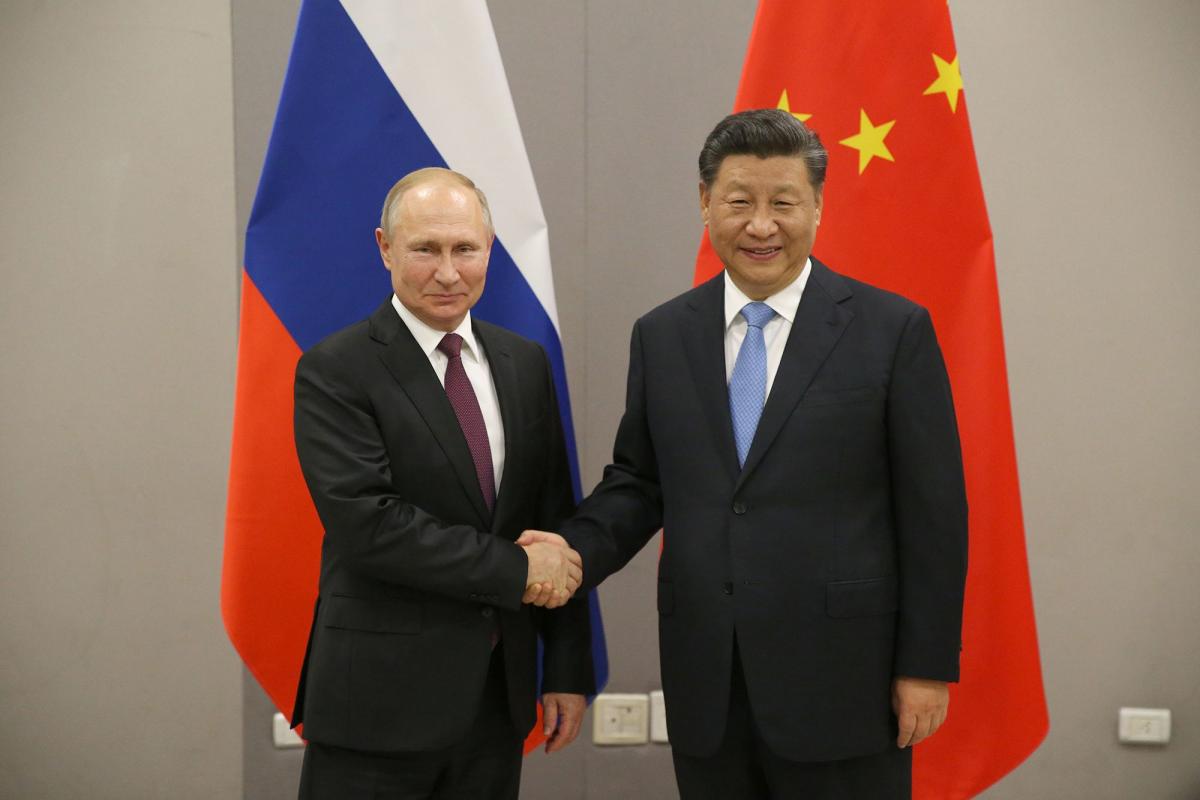On Presidents Day we were greeted by the news that a courageous Joe Biden had secretly travelled to Kyiv to demonstrate American solidarity with Ukraine against Putin. During the visit, Biden promised $500 million more in U.S. aid, bringing the total of U.S. support for the war to more than $100 billion.
Despite massive support from the U.S. and several NATO allies, Russia continues to fight. As this article is being written, a major Russian offensive is underway. Military experts suggest that without additional military assistance, including more modern and lethal weapons, Russians could turn the tide of the war. Many of these same experts suggest that with additional aid, including M1 tanks and F-16 fighter aircraft, Putin could finally be defeated, bringing the war to an end.
The war in Ukraine is now a year old. With the benefit of hindsight, it seems that if the U.S. and others had provided the massive weapons packages being contemplated now a year ago, Russia could have been defeated in months. That may or may not be true, but at the time experts expressed worry that if the wrong types of assistance were given to Ukraine, Putin would respond by using nuclear weapons. The types of assistance viewed as “over the line” included M1 tanks and modern fighters.
What has changed? Putin has not. If the Hitleresque dictator was capable of using nuclear weapons in 2022, that hasn’t changed. If anything, because Russia is said to be running low on both troops and weapons, he is more likely to escalate the conflict to force Ukraine to a peace table now than he was in February 2022.
For the past year, Americans also have watched warily as Chinese President Xi Jinping has strengthened ties with Russia. To date, only economic support has been offered. Now there is talk that Xi also might offer military assistance to Putin.
Neither of these two risks has deterred President Biden from relentlessly expanding his support for Volodymyr Zelenskyy. Less than half the American public supports Biden on this, but his party, with a handful of exceptions, is behind him. And the most vocal Republican voices opposing more aid to Ukraine are people like Marjorie Taylor Greene (R-GA), who is also proposing that Red states withdraw from the union. She is sponsoring a resolution to impeach Biden for his recent trip to Kyiv.
Much of the press is also supporting Ukraine. Stories about Russian atrocities and about the personal courage of Zelenskyy and his wife Olena are not hard to find. With few exceptions, Ukrainians are depicted (correctly, in my view) as victims of Russian aggression. You have to look hard to find stories about Ukrainian corruption or anything suggesting that Zelensky, a former actor, has orchestrated an incredibly successful public relations campaign.
So, as I see it, we Americans are suffering from what might be called contagion of war. We are slipping into what might turn out to be a nuclear war without thoughtful consideration of the risks involved. The assumption is that stopping Putin’s war is worth almost anything. And somehow those in power seem to no longer believe Putin will use nuclear arms. Have you seen a convincing argument that he will not?
There is no obvious alternative to continuing to support Ukraine, which is perhaps the primary reason the contagion of war is spreading so fast. If President Biden were given some sort of simple solution to end the war—and I haven’t seen anything resembling a workable proposal—perhaps he would change course. That is not likely to happen.
Because, for the time being, a sufficient number of Americans, and a critical mass of elected officials, support the war in Ukraine, the risk of serious escalation is growing. That is worrisome. What might that escalation consist of? Russia using tactical nuclear weapons; China providing modern weapons and other military assistance to Russia; Belarus entering the war with troops. And what if North Korea offered to send over a few troops? And what about Iran and more drones?
If you want to know what the contagion of war might lead to, here is a two-word answer: World War.
If you want to know what will happen if the U.S. does not respond to Ukraine’s need for more potent weapons or stops supporting the war, the answer is that Putin will win and Ukraine, for all practical purposes, will die. That is the current dilemma. It will take more than courage for President Biden and Congress to find the right path forward.
J.E. Dean is a retired attorney and public affairs consultant writing on politics, government, and other subjects.



Clark Bjorke says
Not supporting Ukraine, not standing up to, as you so accurately put it, the “Hitleresque dictator” is what could and would lead to world war. Do we not learn anything from history? We can not afford to emulate Neville Chamberlain. Putin will never be satisfied until he has consumed the world. He must be defeated.
John Dean says
Thank you for reading the piece and for your comment. I did not say we should not stand up to Putin. Rather, I expressed concern that many who support Ukraine seem to be ignoring the risk that Putin will use nuclear weapons or that the war could spread into a world war. I expressed hope that President Biden might find a way to support Ukraine while keeping the very real risks I cited in mind.
Maria W says
It seems to me that Biden and leaders of other countries’ and of NATO and the EU are doing exactly that—trying to support Ukraine without provoking Putin. I’m the opposite of a hawk, but as the war grinds on, it becomes a less tenable and arguably riskier goal. Certainly it’s more dangerous for Ukrainians, Belarusians, Moldovans, etc.